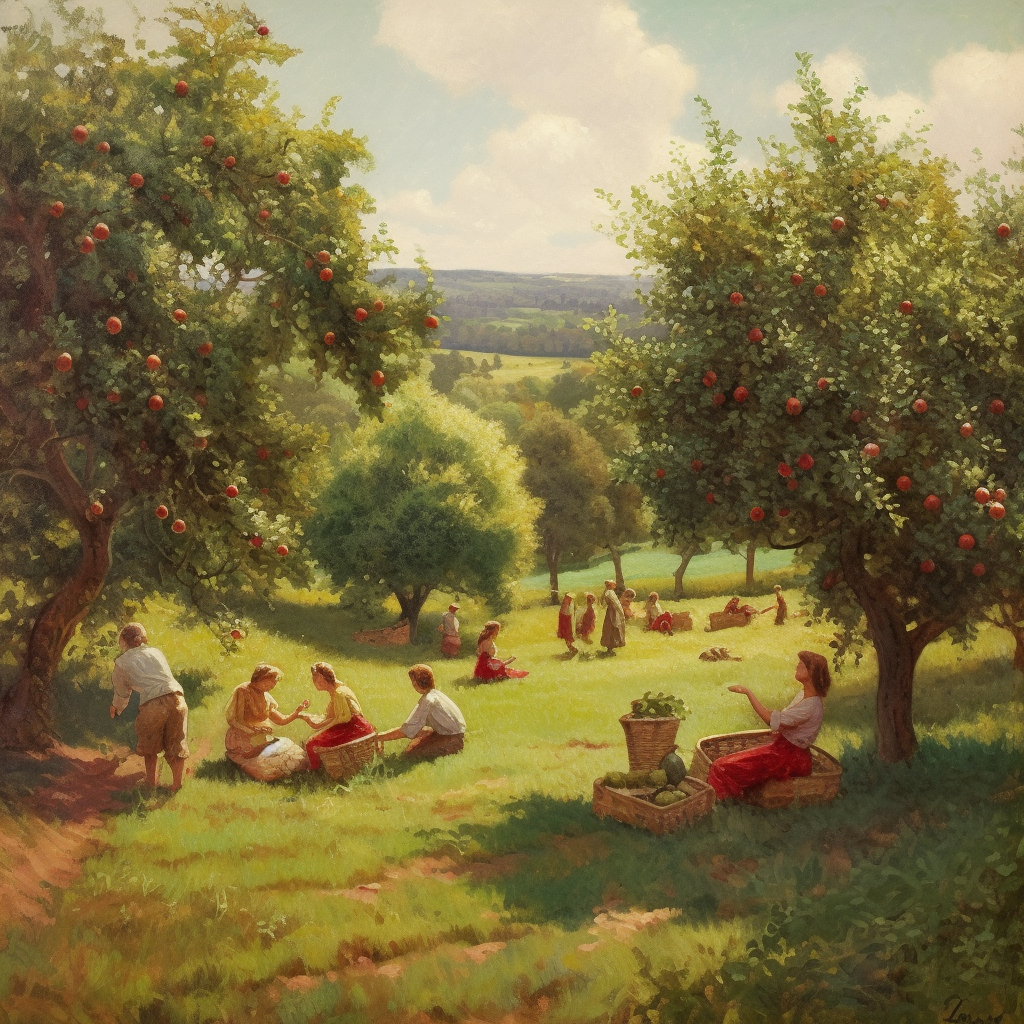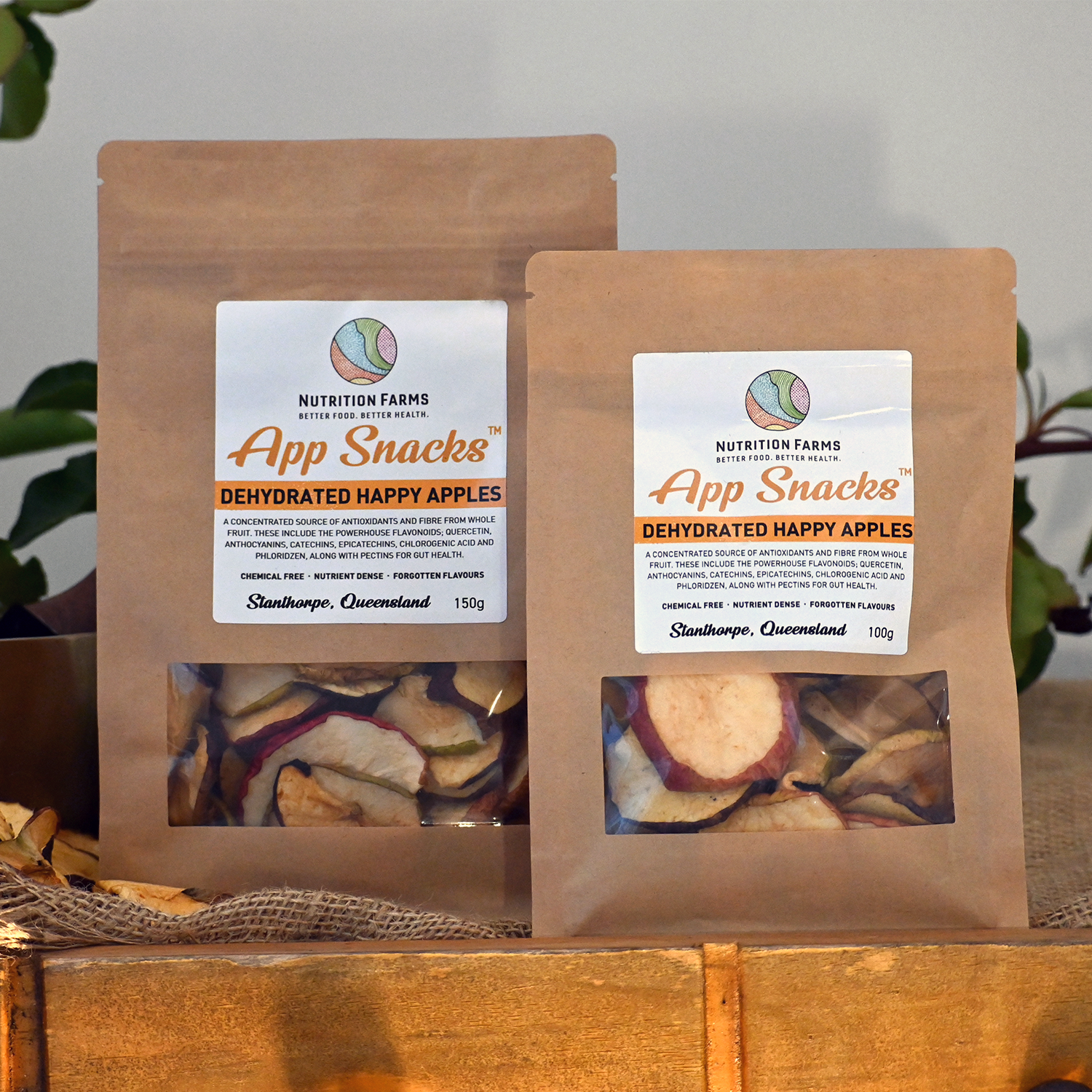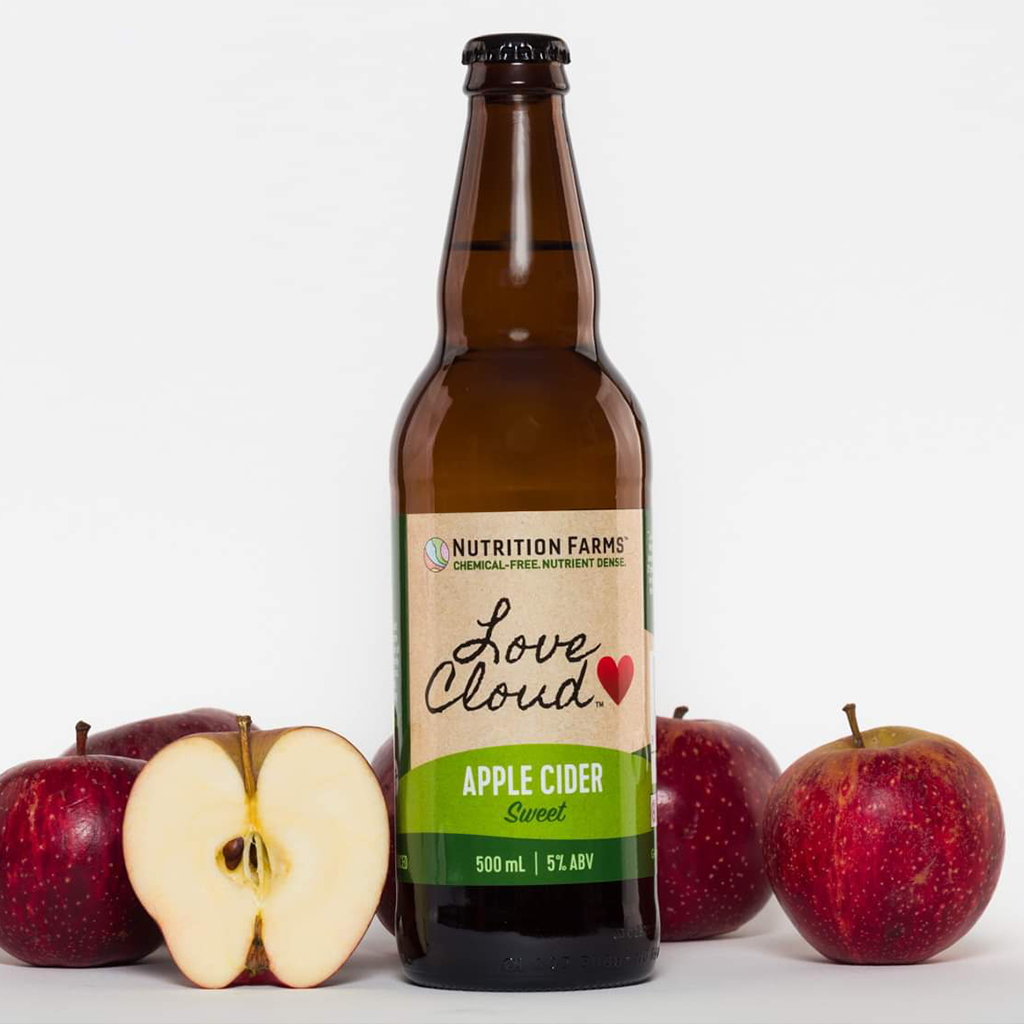Apples - The Forgotten Superfood

They are an unromantic and common fruit that has fallen out of favour amidst more fashionable alternatives. However, it's time to rekindle our appreciation for this unassuming lunchbox staple. I am quite sure you will be pleasantly surprised when you discover the vast suite of benefits associated with the King of Fruits.
Perhaps it was no accident that the apple was the first fruit tasted in Eden. It is likely that there is some fire behind the smoke that led to that old adage “an apple a day keeps the doctor away”. Well, let’s warm our hands on that fire, and I can assure you that you will soon view apples in a whole new light (and you may even stop discarding the apple core).
Apples are rich in high levels of a group of antioxidants called phenolic compounds. The most important in apples are phloridzin and chlorogenic acid, both of which concentrate in the apple core. There are also luxury levels of protective flavonoids including catechins, epicatechins, quercetin, procyanidins and anthocyanins.

The core of the matter
Let’s first look at the benefits of eating the apple core. You may have heard that this is not advisable because apple seeds contain a natural form of cyanide. They actually contain a plant chemical called amygdalin, which converts to hydrogen cyanide during digestion. There are those that contend that this substance can kill cancer cells, and they call it vitaminB17. There appear to be many anecdotal reports that apricot kernels (the highest source of amygdalin) can benefit cancer patients, but there is very little scientific research to support this contention. The main issue is avoiding a toxic response.Research suggests that you would need to eat 40 apple cores in one sitting for this natural cyanide to become vaguely toxic to your system. So, eating the core is not a problem. Let’s now talk about the benefits!
The core contains the highest concentration of chlorogenic acid in the apple. Let’s look at what this phenolic compound can offer. It might be of interest to know that this is the most important protective compound in coffee. Coffee once had a bad rap from natural health professionals, due to concerns that it could be acidifying. Then studies started rolling out to the contrary. It now appears that chlorogenic acid's benefits far outweigh the negatives.
Several published studies have highlighted chlorogenic acid's capacity to lower blood pressure and improve blood vessel function. Several of these involved green coffee, which has higher chlorogenic acid levels.
Other research has confirmed that chlorogenic acid can reduce blood sugar levels, increase insulin sensitivity and improve the blood fat profile.
There are also several weight loss studies associated with coffee consumption (particularly green coffee). Findings include a reduction in blood fats like triglycerides and cholesterol, and an improvement in Body Mass Index (BMI), body weight, and waist circumference.
There are also multiple mouse studies demonstrating that chlorogenic acid improves and preserves cognitive function.
That sounds like a compelling, standalone reason to eat the apple core, when there are higher concentrations of chlorogenic acid in the core. However, what about the story of another powerful phenolic substance found exclusively in the core? As I mentioned earlier, this substance is called Phloridzin. Phloridzin prevents the kidneys from reabsorbing sugar. This lowers blood sugar levels and is particularly critical when it is now suggested that one in three of us may be pre-diabetic, and type 2 diabetes is referred to as “the coming plague”. Phloridzin can also slow tumor growth and lessenbone loss.
In one study entitled “Fruit and Vegetable Byproducts - Novel Ingredients for a Sustainable Society” published in 2021, the researchers looked at apple pomace (the press cake byproduct from juicing). They demonstrated that this often discarded material was actually a concentrate of phloridzin from crushed apple cores. They cited research demonstrating that it was an anti-diabetic, antioxidant source that had also been shown to slow bone loss, improve cognition and inhibitcancer cells. We now offer a ten-times concentrate of this protective pomace, in the form of a freeze-dried powder called Nutrition Farms Phyto-Force.
When looking at alternative uses for this byproduct of juice and cider making, I also discovered that pomace has considerable biofertiliser potential. In fact, it has been found to be a potent substrate to multiply trichoderma, and to distribute this disease control agent across your farm. There is no pomace wasted at Nutrition Farms. We have found that it can also be turned into a liquid biofertiliser, following lacto-fermentation with BAM.
These phytonutrients are a compelling reason to eat the apple core, but wait until you hear about this study from Austria.
Researchers from Graz University of Technology in Austria analyzed the beneficial bacteria from both conventionally and organically grown apples. They discovered that an apple can contain around 100 million probiotic bacteria. Most of these bacteria are found in the apple core. In fact, 90 million of these beneficial compounds are found in that commonly discarded leftover. Interestingly, for those of us producing chemical-free apples, there were vastly higher concentrations and diversity of these probiotic organisms in organic apples. In fact, probiotic organism numbers were very low in conventionally grown apples. I guess the good bugs hate chemicals, like most other living things.

Fantastic Flavonoids
Let’s continue the good news. I guess most of you are aware of a flavonoid called quercetin, particularly in relation to the potential for Covid protection. Well, apples rank in the top five for this substance, with capers containing the highest level, and red onions being the best vegetable source. Red Delicious and Royal Gala contain the highest concentrations. Berries are also in the top five, in terms of quercetin density, but there is an important consideration here. You are highly unlikely to consume 150 grams of capers, red onion or blueberries in a single sitting, but that weight represents a single serve of apples. It is obviously a more accurate comparison to compare antioxidants delivered per serve, and, in this light apples are a standout winner, in terms of health benefits.
So what’s the big deal about quercetin? Well, it is a big deal, because this flavonoid is really something special.Quercetin is well researched to improve blood circulation and has several benefits. Blood pressure, for example, can be reduced, with less risk of stroke and cardiovascular problems. Quercetin also addresses erectile dysfunction, as that common problem is largely linked to poor blood flow to the penis.
Quercetin has been used medicinally for centuries, but we now have some science behind its popularity. We now understand it is anti- inflammatory, an antioxidant and anti-apoptitic, which means it can reduce collateral damage from chemotherapy. It is anti-platelet, which makes your blood less sticky. It has also been shown to positively impact kidney, gut, heart and joint health.
More recently Quercetin has received considerable research attention in relation to protection from Covid 19. The promising findings, relative to reducing the severity of the disease, have led to a shortage of supply in some regions. Research has demonstrated that an excellent synergistic treatment involves a combination of quercetin, vitamin C and bromelain. This treatment is often referred to as QCB, and part of its impact relates to the fact that bromelain, the protein-digesting enzyme extracted from pineapples, increases Quercetin uptake and utilization by 80%!
Vitamin C, along with multiple other protective benefits, has been shown to recycle oxidized quercetin, so this trio provides seriously good synergy.
Catechins - the pipe-opening, gut-life stimulants
Most of you have heard of catechins and epicatechins, but you were likely unaware that Granny Smith apples have ten times more epicatechins than blueberries. Dark chocolate is the highest source of this duo, but broad beans are also superstars for catechin content.
Consumption of these two substances has been linked to greater antioxidant activity in the blood, meaning more destructive free radicals can be neutralized. Well-researched benefits also include better arterial dilation, and resistance of LDLcholesterol to oxidation.
LDL is often called the bad cholesterol, but that is misleading. It is just much smaller in size than HDL, so it has more surface area for oxidation (attack by free radicals). Oxidized LDL can stick to your arteries and create the “clogged pipe” syndrome, linked to heart attacks. LDL is not a “ bad boy” as such. In fact, it carries vitamin E and carotenes into the cells. However, you need a diet rich enough in antioxidants to prevent LDL oxidation.
These are impressive catechin benefits, but it is the positive impact on your gut life that may well be the major benefit of both catechins and epicatechins. Gut microbiota can biotransform catechin and epicatechin, and the presence of these nutrients in the gut can induce changes in gut microbial populations. It has been speculated that catechin/epicatechin can help inhibit production and activation of harmful bacteria, while allowing beneficial bacteria to flourish.
The other major phytonutrient in apples is anthocyanins, the same protective pigment found in blueberries. Anthocyanins possess anti-diabetic, anticancer, anti-inflammatory, anti-microbial, and anti-obesity effects, as well as cardiovascular disease prevention. Red delicious has the highest levels of this protective marvel and is mostly found in the skin. The more intense the red colour, the greater the benefits. We use red apple skins to produce Phyto-Force, our freeze dried concentrate.

The King of Fruits
You now understand the power of apple nutrition and why apples are the second highest antioxidant fruit. However, apples could actually be termed the “king of fruits”, because their antioxidants are better absorbed than in most fruits. This is partially due to the synergy between these phytochemicals and the prebiotic, stimulatory effect of the soluble apple fibre called pectin.
Apple pectin is a soluble fibre that can improve cholesterol, lower blood pressure, counter constipation and improve gut health by feeding the good guys. These boosted beneficial organisms magnify the impact of the many phytonutrients.
Ten fascinating facts about apple nutrition
1) A researcher named Awad, in a 2002 study, found that nitrogen fertilization was associated with decreases in anthocyanins, catechins and total flavonoids. That same study revealed that calcium fertilization was associated with an increase in anthocyanins and total flavonoids. The two findings are interrelated, of course, because an excess of nitrogen reduces calcium levels. The greatest reason for the substandard taste of many supermarket apples relates to nitrogen mismanagement.
2) Surprisingly, storage has little impact on phytonutrient levels. 12 months later, the fruit loses texture and crispness, but that floury crap is actually still good for you. Who would have thought?
3) Cloudy apple juice is vastly superior to the filtered alternative. It has a higher antioxidant value, and it retains a significant percentage of pectins, with all their benefits. That’s why our apple juices are always cloudy.
4) Alcoholic apple cider is actually the healthiest alcoholic drink, especially if it is dry or semi-dry. It is slightly better than red wine and significantly better than beer. Beer has the highest known glycemic index of 110, so it spikes your blood sugar and associated insulin production. Insulin, in turn, speeds up cell division and shortens your life. Apple cider has a GI of just 40. Sorry to all the beer drinkers out there, but now you understand why it’s called a beer gut!
5) A study conducted by Aprikian et al, found that combined apple pectin and apple phenolic fractions lowered plasma and liver cholesterol, triglycerides, and apparent cholesterol absorption to a much greater extent than either apple pectin alone or apple phenolics alone. This study graphically demonstrates the concert at work in whole foods. This is what nature intended and there is always more value in sourcing your nutrition from well-grown food, rather than the pill bottle.
6) Apple juice is amongst the healthiest of fruit juices, but it must be cloudy. In one study, cloudy apple juice reduced the dreaded oxidation of LDL by up to 34%. Check out the delicious, chemical free, cloudy apple juices on The Nutrition Farms website.
7) In multiple studies, apple consumption has been linked to reduced cancer risk. Protection from type 2 diabetes, heart disease and asthma. The studies involving, liver cancer, colon cancer and lung cancer, are particularly profound.
8) Apples can be an effective weight loss tool, particularly if consumed directly before a meal, where they can act as an appetite suppressant.
9) It's really all about how you grow food. In a recent Indian study, catechin levels in apples ranged between 109.98 to5290.47 µg/g. That’s a 50-fold difference! Simplistic NPK nutrition on the farm will invariably reduce the medicinal value of the food you are producing. It’s like the UK study, where they actually found significant numbers of oranges with zero vitamin C content.
10) We all know it, but many forget how critical it is. In a major meta analysis in the 1990s, it was found that those with the lowest consumption of fruit and vegetables were more than twice as likely to succumb to cancer, when compared to those with the highest consumption. Protective eating is really not that difficult, but imagine if that fresh produce wasproduced in a chemical-free, nutrient-dense way with Nutrition Farming protocols. You really need to taste our Happy Apples to understand what is possible.
Well, you now know the multiple benefits of this wonder fruit and you might be wondering where you can source chemical-free, nutrient dense apples with forgotten flavours, extended shelf-life and enhanced medicinal qualities. If you can source Nutrition Farms Happy apples, you will understand what nutrition does to flavour. I wish we had filmed the responses at the recent Apple and Grape festival in Stanthorpe, where my apple farm is based.
We encouraged some of the 50,000 attendees to taste our apples, and they experienced the flavours their grandmothers remembered. The facial expressions were delightful and incredibly gratifying for a passionate apple producer.
Similarly, if you can source any of the three types of Nutrition Farms Apple Juice, you will understand the power of minerals, microbes and humus. This chemical-free, cloudy apple juice will surely rank among the best you have ever tasted. It is available in one litre bottles and 350 ml bottles, and there is now a version with infused ginger juice. The ginger additive comes from organic ginger produced on my Sunshine Coast farm.
App Snacks are a sweet, tangy, chewy treat, based on dehydrated Happy Apples. These dried super snacks involve the whole fruit, including the skin and the core, for all the reasons you now understand. In fact, they are an eight times concentrate of all of these benefits, and they are the perfect lunch box additive, as children love them. Nuku, my three year old grandson, will eat a whole 150 gram packet in a single sitting, if we do not ration this treat. I find it tremendously satisfying to think that this precious child can readily access this chemical-free concentrate of powerhouse protective antioxidants, prebiotic fibre and probiotic organisms, and, importantly, he loves them more than lollies!

Love Cloud, our alcoholic apple cider, made from this memorable produce, was recently awarded two medals at the National Cider Australia awards. It is the first Queensland cider to achieve that honor.

Mother Love apple cider vinegar is made from the same juice blend that created the award-winning cider. It is remarkably biologically active, with the “Mother” visibly present. Apple Cider vinegar is renowned for its multiple health benefits, so it follows that those benefits will be amplified, when ACV is produced from nutrient-dense, chemical-free apples.
Phyto-Force is the latest addition to Nutrition Farms' functional foods range. This is a freeze-dried powder derived from red apple skins and cores, that provides a ten times concentrate of all of the benefits described (it takes ten kgs of raw material to produce one kg of Phyto-Force).
If you are an apple lover looking for this extraordinary fruit, juice, ACV, dried apples or apple powder, you can visit The Nutrition Matters shop at the NTS complex, at 7 Harvest Road, Yandina. Alternatively, you can purchase on-line, via www.ntshealth.com.au or www.nutritionfarms.com.au
If you are a retailer seeking to supply Nutrition Farms Happy Apples, or their value-added derivatives, contact Cloudy, at Nutrition Farms. Her mobile number is 0447 046 490. Her email address is cloudy AT nutri-tech.com.au.
